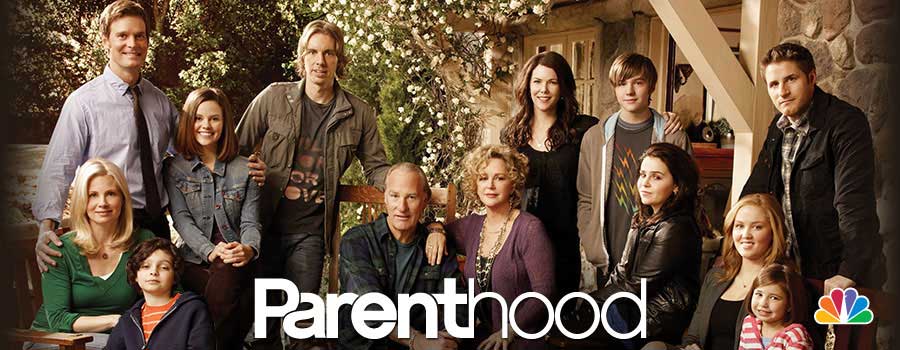
How 'Parenthood' Helped Erase the Stigma of Mental Illness (Op-Ed)

Get the world’s most fascinating discoveries delivered straight to your inbox.
You are now subscribed
Your newsletter sign-up was successful
Want to add more newsletters?

Delivered Daily
Daily Newsletter
Sign up for the latest discoveries, groundbreaking research and fascinating breakthroughs that impact you and the wider world direct to your inbox.

Once a week
Life's Little Mysteries
Feed your curiosity with an exclusive mystery every week, solved with science and delivered direct to your inbox before it's seen anywhere else.

Once a week
How It Works
Sign up to our free science & technology newsletter for your weekly fix of fascinating articles, quick quizzes, amazing images, and more

Delivered daily
Space.com Newsletter
Breaking space news, the latest updates on rocket launches, skywatching events and more!

Once a month
Watch This Space
Sign up to our monthly entertainment newsletter to keep up with all our coverage of the latest sci-fi and space movies, tv shows, games and books.

Once a week
Night Sky This Week
Discover this week's must-see night sky events, moon phases, and stunning astrophotos. Sign up for our skywatching newsletter and explore the universe with us!
Join the club
Get full access to premium articles, exclusive features and a growing list of member rewards.
Brian Dyak is president, CEOand co-founder of the Entertainment Industries Council (EIC), and executive producer of EICnetwork.tv. He contributed this article to Live Science's Expert Voices: Op-Ed & Insights.
Emotions ran high last month during the final episode of the popular NBC series "Parenthood." The series, centered around the Braverman family, brought honest conversations about depression, substance use, mental health, aging, cancer and other difficult topics into viewers' homes and lives.
Through its dynamic writing, "Parenthood" has taken an active approach to mental wellness: a family-support approach. For millions of viewers, the show raised mental health awareness and showed that people can recover from such situations and live happy, productive lives. Because of its accuracy and genuine style of depicting mental illness and substance use recovery, "Parenthood" has won five PRISM Awards from the Entertainment Industries Council, including to stars Craig T. Nelson, Peter Krause, Monica Potter and Max Burkholder, who won for his role as a child growing up with Asperger's syndrome.
Recently, several of the stars sat down to talk to EIC about the positive power of media and how it can be a tool for change, to inform viewers and elevate conversation around difficult topics, like mental health, cancer, aging and substance use.
As "Parenthood" showrunner, Jason Katims was responsible for the day-to-day operation of the show's production. In several interviews — the most recent being with The Hollywood Reporter — he revealed how he wove his autobiography, as a father to a son with Asperger's syndrome , into the series.
Katims's achievement was to shift audience focus from the difficulties faced by Burkholder's character, Max Braverman, to his many gifts and talents. At times, characters even called Asperger's, which often causes Max to be hyper-focused and detail-oriented on specific topics, a "super power."
Such a shift is the first step in fighting the stigma and discrimination that too often accompany mental-illness diagnoses. "Parenthood" has helped people view mental health more positively, and because of the show's authenticity, the audience could relate to each character's experiences. That, in turn, has encouraged viewers to support those in need who are seeking help.
Get the world’s most fascinating discoveries delivered straight to your inbox.
EIC recognizes the effort put forth by the show's writers to tell these authentic stories and encourage you, whether you are a viewer, a writer, a content creator, a social media user or even a caregiver, to embrace compassion in every post, tweet, "like" or article you share.
In the case of Asperger's syndrome, these individuals live with an autism spectrum disorder , one of several complex neuro-developmental concerns characterized by communication difficulties, repetitive patterns of behavior and social interaction difficulties. In many cases, like with Max Braverman, they are detailed, observant individuals who, with support and guidance from family, friends and medical professionals, are integral members of their communities.
Media, be it broadcast, print or digital, is a source of entertainment and information that can change attitudes and behaviors. We worked with our collaborators to create TEAM Up (Tools for Entertainment and Media) to help change the conversation and reduce stigma and discrimination around mental illness, with best practices for communicating on social media.
It's important for everyone to remember, especially online, that our words matter and if we communicate in a positive, proactive way, we can encourage someone in need to seek help.
Follow all of the Expert Voices issues and debates — and become part of the discussion — on Facebook, Twitter and Google+. The views expressed are those of the author and do not necessarily reflect the views of the publisher. This version of the article was originally published on Live Science.
 Live Science Plus
Live Science Plus











